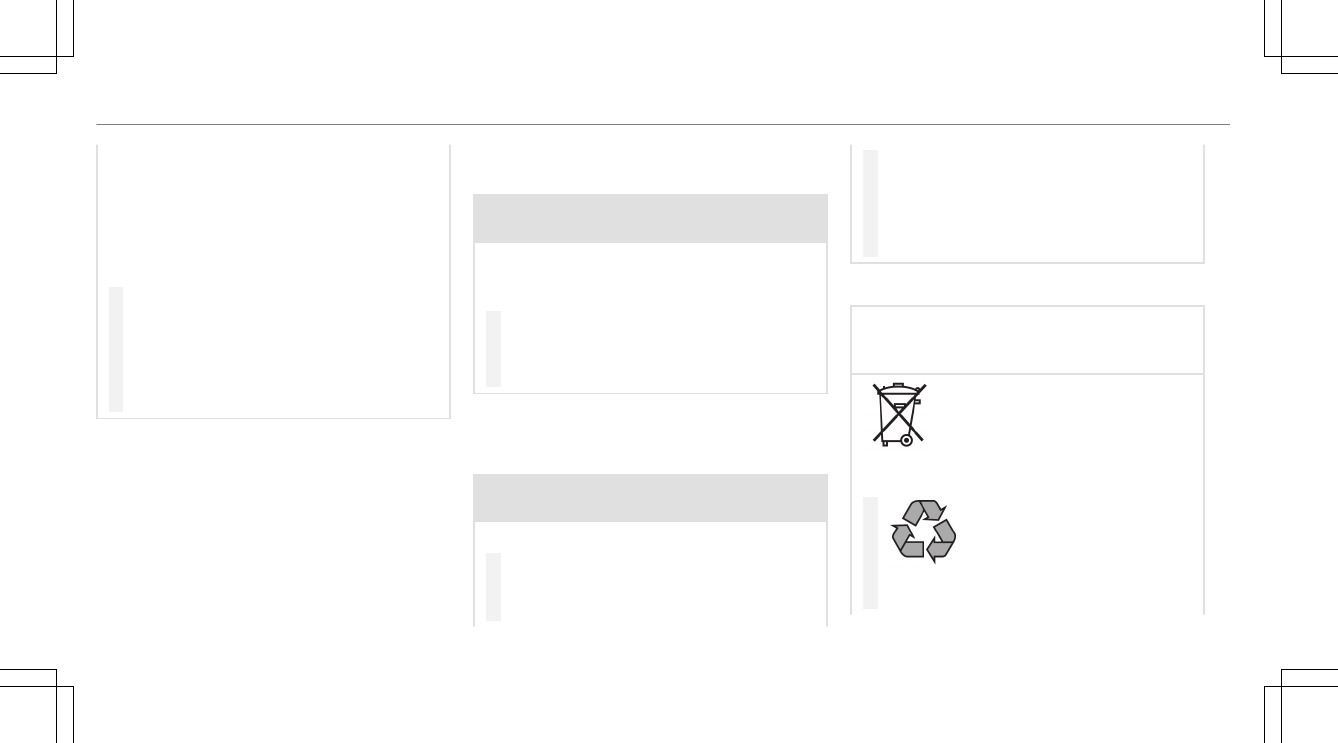You could lose control of the vehicle in the
following situations:
R
when braking
R
in the event of abrupt steering maneuvers
and/or when the vehicle's speed is not
adapted to the road conditions
#
In the event of a short circuit or a simi‐
lar incident, contact a qualified special‐
ist workshop immediately.
#
Do not continue driving.
#
Always have work on the battery carried
out at a qualified specialist workshop.
R
Further information on ABS (/ page 219)
R
Further information on ESP
®
(/ page 220)
For safety reasons, Mercedes-Benz recommends
that you only use batteries which have been tes‐
ted and approved for your vehicle by Mercedes-
Benz. These batteries provide increased impact
protection to prevent vehicle occupants from
suffering acid burns should the battery be dam‐
aged in the event of an accident.
All vehicles except vehicles with a lithium-
ion battery
&
WARNING Risk of explosion due to elec‐
trostatic charge
Electrostatic charge can cause sparks which
may ignite the highly flammable gas mixture
in the battery.
#
To discharge any electrostatic charge
that may have built up, touch the metal
vehicle body before handling the bat‐
tery.
The highly flammable gas mixture is created
while the battery is charging and during starting
assistance.
&
WARNING Danger of chemical burns
from the battery acid
Battery acid is caustic.
#
Avoid contact with the skin, eyes or
clothing.
#
Do not lean over the battery.
#
Do not inhale battery gases.
#
Keep children away from the battery.
#
Immediately rinse battery acid off thor‐
oughly with plenty of clean water and
seek medical attention immediately.
All vehicles
+
ENVIRONMENTAL NOTE Environmental
damage caused by improper disposal of
batteries
Batteries contain pollutants. It is
illegal to dispose of them with the household
rubbish.
#
Dispose of batteries in an
environmentally responsible manner.
Take discharged batteries to a qualified
500
Breakdown assistance

